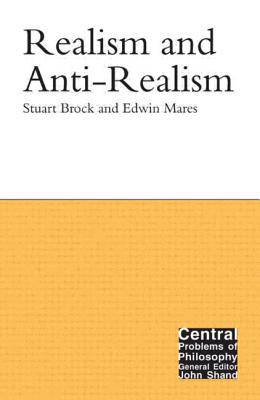
- Afhalen na 1 uur in een winkel met voorraad
- Gratis thuislevering in België vanaf € 30
- Ruim aanbod met 7 miljoen producten
- Afhalen na 1 uur in een winkel met voorraad
- Gratis thuislevering in België vanaf € 30
- Ruim aanbod met 7 miljoen producten
Zoeken
Omschrijving
There are a bewildering variety of ways the terms "realism" and "anti-realism" have been used in philosophy and furthermore the different uses of these terms are only loosely connected with one another. Rather than give a piecemeal map of this very diverse landscape, the authors focus on what they see as the core concept: realism about a particular domain is the view that there are facts or entities distinctive of that domain, and their existence and nature is in some important sense objective and mind-independent. The authors carefully set out and explain the different realist and anti-realist positions and arguments that occur in five key domains: science, ethics, mathematics, modality and fictional objects. For each area the authors examine the various styles of argument in support of and against realism and anti-realism, show how these different positions and arguments arise in very different domains, evaluate their success within these fields, and draw general conclusions about these assorted strategies. Error theory, fictionalism, non-cognitivism, relativism and response-dependence are taken as the most important positions in opposition to the realist and these are explored in depth. Suitable for advanced level undergraduates, the book offers readers a clear introduction to a subject central to much contemporary work in metaphysics, epistemology and philosophy of language.
Specificaties
Betrokkenen
- Auteur(s):
- Uitgeverij:
Inhoud
- Aantal bladzijden:
- 256
- Taal:
- Engels
- Reeks:
Eigenschappen
- Productcode (EAN):
- 9781844650248
- Verschijningsdatum:
- 1/11/2006
- Uitvoering:
- Hardcover
- Formaat:
- Genaaid
- Afmetingen:
- 129 mm x 198 mm
- Gewicht:
- 452 g

Alleen bij Standaard Boekhandel
+ 364 punten op je klantenkaart van Standaard Boekhandel
Beoordelingen
We publiceren alleen reviews die voldoen aan de voorwaarden voor reviews. Bekijk onze voorwaarden voor reviews.











